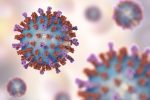COVID-19 May Trigger aHUS in People with Complement Gene Mutations
Written by |

Infection with SARS-CoV-2, the virus that causes COVID-19, may trigger first clinical symptoms or relapse of atypical hemolytic uremic syndrome (aHUS) in people carrying mutations in complement genes, a case report suggests.
The report, “Atypical HUS triggered by infection with SARS-CoV2,” was published in the journal Kidney International Reports.
aHUS is a rare disease characterized by the destruction of red blood cells (hemolytic anemia), reduction of platelet counts, and acute kidney failure. The condition is caused by a dysregulation of the complement cascade, a system of immune proteins that, when triggered, leads to severe inflammation and blood clotting.
Although genetic mutations can enable the dysfunction of the complement system, usually a secondary disease, such as an infection, is needed to trigger aHUS.
In this study, a group of researchers in Germany described two cases of aHUS triggered by SARS-CoV-2 infection.
The first case was a 22-year-old woman that tested positive for SARS-CoV-2 in January, after a trip abroad. She had no respiratory symptoms, but visited her general practitioner (GP) due to diarrhea accompanied by persistent vomiting and loss of taste. Four days after returning to Germany, she went to the emergency room after no easing of symptoms.
The patient was alert and pale, with normal blood pressure, but she was in acute distress.
A blood test revealed low platelet levels of 28,000 platelets/microliter (uL), while normal levels are between 150,000 to 450,000 platelets/uL, and anemia with hemoglobulin levels of 5.5 grams per deciliter (g/dL) — normal levels range from 12–16 g/dL for women.
Moreover, she had signs of tissue damage with elevated levels of lactate dehydrogenase, and of acute kidney injury with abnormally high levels of creatinine in the blood (560 micromoles per liter or umol/L, whereas the normal range is 53 to 98 umol/L for women).
In the hospital, she received five blood transfusions. She was diagnosed with thrombotic microangiopathy — formation of blood clots in tiny blood vessels — and underwent daily treatment with plasma exchange. This procedure involves replacing a person’s plasma (the non-cellular parts of blood) as a strategy to “clean up” the blood.
The patient was then diagnosed with aHUS, after a negative test for ADAMTS13 deficiency, which can also lead to the formation of blood clots in small blood vessels throughout the body.
Following the diagnosis, plasma exchange was stopped and she began treatment with Soliris (eculizumab; marketed by Alexion), an approved therapy for aHUS. Within 10 days of treatment with Soliris, her platelet counts increased and destruction of her red blood cells halted.
Genetic testing revealed the patient carried a potential new disease-causing mutation in the complement factor H (CFH) gene. The mutation (c.3493+5G>A), the researchers noted, has never been reported.
The second case in the study was of a 52-year-old woman who visited her GP with flu-like symptoms, loss of taste, and exhaustion. She had a history of mild high blood pressure.
She was prescribed treatment with the antibiotic amoxicillin, but 10 days later, she returned to her GP with additional symptoms, including abdominal pain and cramps. Blood analysis revealed signs of acute kidney failure (blood creatinine levels of 264 umol/L).
The patient was re-admitted to the hospital, where she tested positive for SARS-CoV-2. She was alert and in acute distress, and a physical examination showed she had high blood pressure. Despite having normal platelet levels (318,000 platelets/uL), her hemoglobulin levels were relatively low (9.4 g/dL).
During the next few days, she developed anemia, and her platelet levels decreased to a minimum of 128,000 platelets/uL. She had to undergo hemodialysis within 10 days after admission.
ADAMTS13 deficiency was excluded in her case, and she began treatment with Soliris. The kidneys began to recover, albeit slowly, upon treatment, and she remained on dialysis for nearly two months. Her platelet levels increased and within 13 days of treatment, the destruction of her red blood cells (hemolysis) was resolved.
During follow-up, genetic testing revealed a likely disease-causing mutation in the CFH gene. The mutation (c.2792G>A), affecting only one of the copies of the CFH gene, was new and different from that reported in the first case.
Overall, “our case reports underline that an infection with SARS-CoV-2 should be recognized as a potent trigger in patients with inherent complement defects, even when the symptoms of infection were mild or the patient has recovered from COVID-19 disease,” the researchers wrote.
“Patients with inherent complement defects may be at risk for relapsing or presenting with a first episode of aHUS when infected with SARS-CoV-2,” they concluded.






